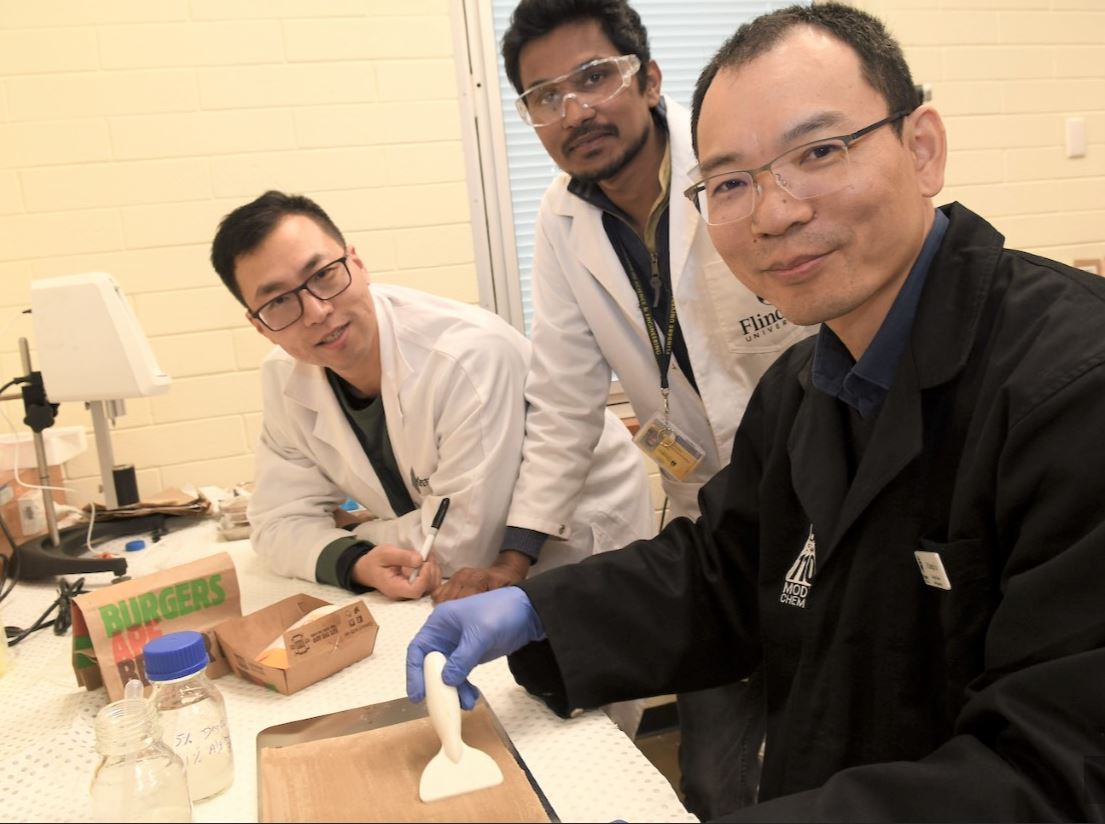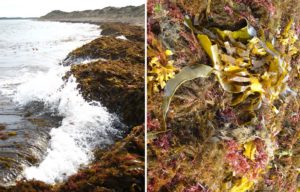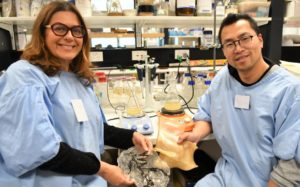
Flinders University materials researchers and pioneering German biomaterials developer one • fıve are using seaweed extracts to develop next-generation biopolymer coating materials that could solve packaging waste dilemmas for the fast-food industry.
The new non-pollutive biomaterials are designed to replace conventional fossil-based plastic coatings used in grease-resistant fast-food packaging.

Grease-resistant paper is typically coated with plastic and other environmentally harmful chemicals, such as polyfluoroalkyl substances (PFASs), but the new prototype coating meets the functional requirements of conventional grease-resistant packaging materials while also presenting an environmentally circular solution.
The result represents a landmark achievement in creating next-generation sustainable and ecologically responsible biopolymer.
"We are able to reduce harmful plastic pollution with this product, and we are also using feedstock that is environmentally regenerative," says Claire Gusko, one • fıve Co-Founder.
 "Seaweed cultivation helps to naturally rehabilitate marine environments, reduce greenhouse gases, and mitigate coastal erosion. It's important for us to use sustainable inputs upstream to ensure our products are environmentally safe, from cradle to grave."
"Seaweed cultivation helps to naturally rehabilitate marine environments, reduce greenhouse gases, and mitigate coastal erosion. It's important for us to use sustainable inputs upstream to ensure our products are environmentally safe, from cradle to grave."
This development - which took extracts from certain seaweeds, added modifications and formed degradable bioplastic films - has been led by Dr Zhongfan Jia, a lead researcher from the Flinders Institute for Nanoscale Science and Technology and research colleague Mr Peng Su in association with the Flinders Centre for Marine Bioproducts Development.
"The seaweed extracts have a similar structure to the natural fibres from which paper is made," says Dr Jia. "Our novel specialist treatments boost the grease-resistance feature of the seaweed via simple modifications while not affecting biodegradability nor recyclability of the coated paper."

Biomass for the new coating formulation is made from natural polymers extracted from seaweeds that are native to the South Australian coastline - which provided a key reason why the Flinders University researchers studied it for more broad scientific application.
These extracts are transformed through a proprietary processing methodology to produce functional biopolymer sheets that can be cut or coated onto various surfaces, depending on the application.
Flinders University and one • fıve are now working towards transferring laboratory-scale processing to produce industrially-relevant volumes of the natural polymer coating.
This initiative aims to have a transformative impact on the global packaging and plastics industry by significantly reducing reliance on highly pollutive conventional plastic.






